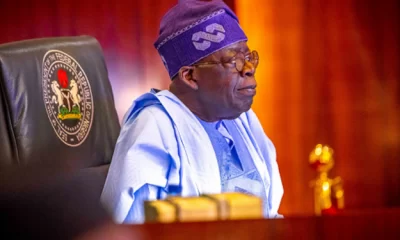Politics
100 days in office: Tinubu, others fail to satisfy the yearnings of Nigerians- NNPP chieftain

A chieftain of the New Nigeria Peoples Party (NNPP), Ambassador Olufemi Ajadi Oguntoyinbo has berated President Bola Ahmed Tinubu and the governors in the 36 states who just clocked their first 100 days in office saying they have failed to kick start their campaign promises on a good note.
Speaking with journalists on Wednesday on the state of the Nation in Ogun state, Ajadi, who was the 2023 gubernatorial candidate of the NNPP in the state, noted that elected public officials who are marking their 100 days in office have failed to satisfy the yearnings and aspirations of Nigerians.

He said the elected officers have not been able to impact much on the citizenry adding that though 100 days is a short time out of four years, Nigerians have not seen any sign of them fulfilling their campaign promises.
He said the citizens who voted with hopes of a brighter future now grappled with a stark reality.
Ajadi stressed that elected leaders faced increasing pressure to deliver on their campaign pledges, scrambling to present plans and initiatives to address rising discontent.
According to him: “Your hundred days in office are not worth celebrating because they lack impact on our citizens. The workers are still collecting thirty thousand naira (N30,000) minimum wage despite the increment on all household items caused by the subsidy removal.
“The palliatives are not getting to the downtrodden, instead of using NIN, BVN attached to bank accounts to detect the poorest of the poor, they are just giving them out to politicians using wards and local government.
“Instead of giving palliatives to states by federal government, the money realised from subsidy removal should have been channelled towards infrastructural development, which will be beneficial to every Nigerian irrespective of his or her financial status.
“Both poor and the rich are plying roads, using electricity, health care facilities, education and other social amenities, hence, the need for government to channel the proceeds from subsidy removal to infrastructural developments to go round.”

























